By TJ Pinto, OTD ’24
When I was in high school, I was known as the dental guy. I attended a vocational-technical high school where I took the typical courses that are offered at most high schools, like math, science, history, and English, however, I also had the opportunity to take dental assisting courses, even becoming certified in dental radiology when I was 16. Throughout high school, I had competed at the national level in Dental Science competitions through an organization called HOSA Future Health Professionals, even medaling in the top 3 in the nation two times. A fire had ignited deep within me. I was going to be a dentist, and no one could tell me otherwise.
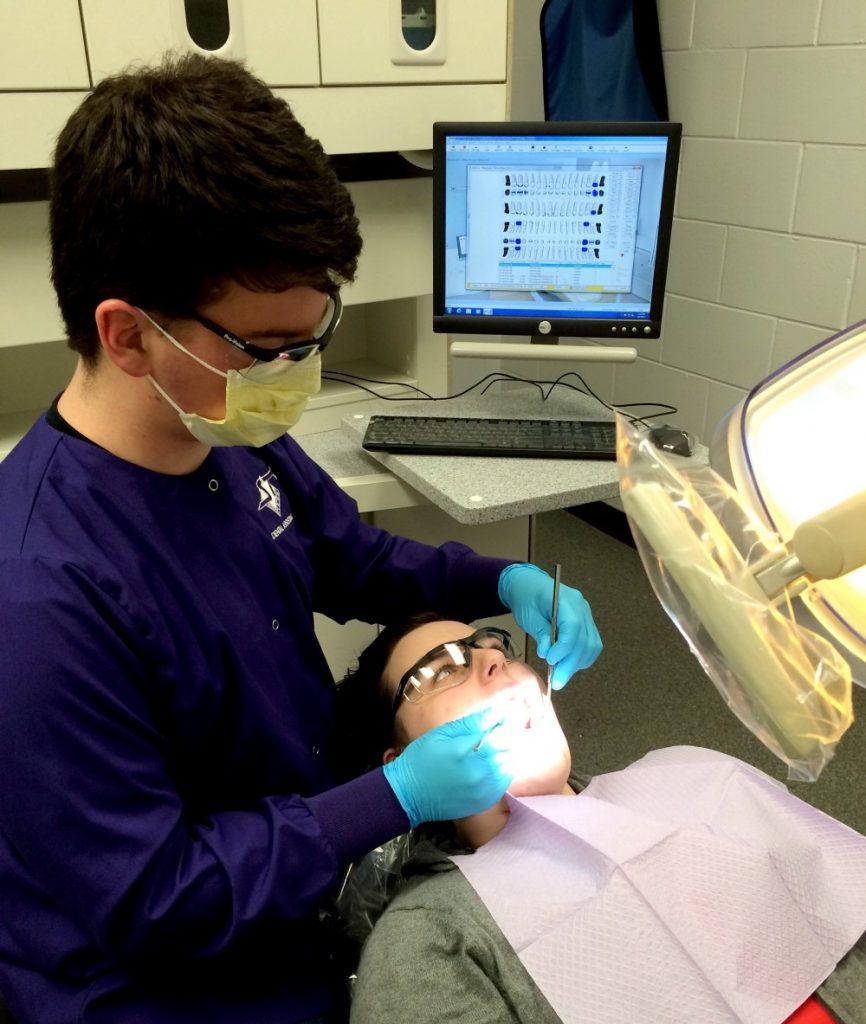
Fast forward a few years and I was pursuing my undergraduate degree at the University of Delaware with a concentration in pre-dentistry. Among other prerequisite courses, I remember sitting in my Organic Chemistry class and constantly thinking, “This is not for me,” though I kept moving forward, nonetheless. At this point, I had convinced myself that I would be better off suffering through numerous dental school prerequisites that I was not passionate about rather than giving up on the career that I had been interested in since I was in the sixth grade. The idea of having to start over and find a new career path was just too daunting for me to even fathom, yet I couldn’t help but notice that the fire within me was slowly dimming.
In the Fall of 2017, this fear suddenly felt insignificant, after a tragic event occurred back at home, feeling like my world had stopped completely while the rest of the world continued to fly past me. As a result of this tragedy, my mom was critically injured, ultimately having to receive intense physical and occupational therapy. I watched her go from being intubated in the ICU to using a walker around the house to now being fully independent and working as a nurse again. My mom’s strength was truly undeniable. Her resilience inspired me and the work that her therapists did to help her to heal both physically and mentally opened my eyes to a new field of careers. By the winter of 2019, just months before graduating from undergrad, I decided to shift my focus to a career in the rehabilitation sciences.
When considering this new field of careers, I initially decided to pursue physical therapy. I had a general idea of what the role of a physical therapist was from accompanying my mom to physical therapy appointments when I was home from college. When I was younger, I even went to a PT myself for a rotator cuff injury. During my final semester of undergrad, I started volunteering for a few hours a week at the University of Delaware Physical Therapy clinic—a clinic run by clinicians and student PTs from the university. Being able to see patients on a weekly basis and ask questions about their treatment excited me. I ended up even attending a career fair held by my university for students to find jobs and summer internships specifically focused on PT. At this fair, I met numerous representatives from different companies and the small, welcoming family feel that I received from the Premier Physical Therapy & Sports Performance team pushed me to hand over my resume. Just around a week or two later, I had landed a job working with them as an exercise technician beginning a few days after my graduation in May of 2019.
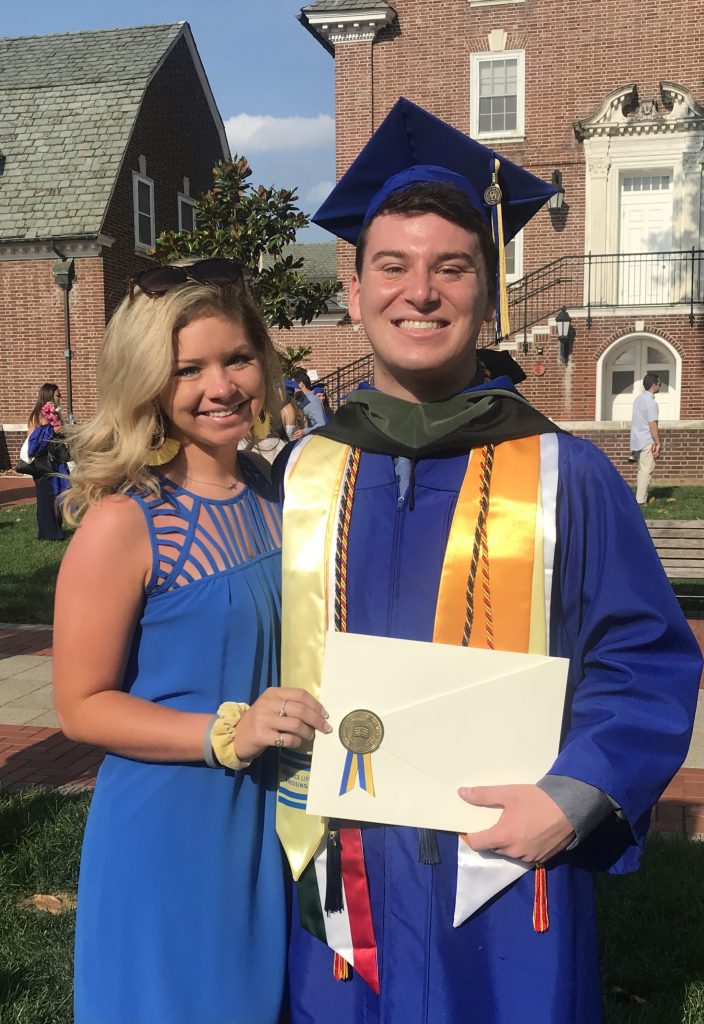
Working at Premier was such an incredible opportunity for me. I was able to receive hands-on experience working with patients, observe treatments being performed by PTs, and ask as many questions as my heart desired. Though, I slowly found myself gravitating toward the back corner of the clinic, an area where people were constantly talking and laughing, even being referred to as the “fun corner” by my clinic director on a few occasions. I began speaking with the clinician working in this area, an occupational therapist working in hand therapy as a Certified Hand Therapist (CHT). At this point, I knew almost nothing about what an occupational therapist was, but I was interested in learning more.
In August of 2019, I began shadowing Katie, an occupational therapist working in both an outpatient setting and an acute care setting. I remember the very first patient that I had observed her working with, an individual who had experienced a stroke and was having difficulty performing several of their activities of daily living (ADLs) independently. On this day in particular, Katie was working with them to straighten their pointer finger, which was tightly flexed as a result of a trigger finger. Katie set up a Jenga tower and played with them, encouraging them to focus on straightening and using that one pointer finger specifically. On a different day, this same patient came in and stated that they were unable to buckle their seatbelt without assistance from their partner. Katie then brought us all outside, had the patient get into the passenger seat like they normally would, and then observed them attempting to buckle themselves. She quickly noticed that the center console was what was getting in the way and that once it was flipped up, the patient could fully extend their pointer finger, reach down, and buckle themselves on their own. Katie made treatment fun, but it still had purpose. She listened to the specific concerns and goals that mattered to her patients and did everything she could to support them so that they could live their lives to the fullest. After a few sessions of shadowing Katie, the fire within me that had almost completely extinguished a few years earlier was now ignited all over again—fueled by the idea of one day becoming an occupational therapist, providing holistic care and helping people to do the things that matter most to them.
Once I had officially decided that I wanted to become an OT, it was time to start preparing. I decided that I would take a full year to finish up my remaining prerequisites, gain hours shadowing in multiple settings, and continue to work as an exercise technician. In the fall of 2019, I was shadowing in a school-based setting, an outpatient setting, and a hospital while taking two classes at a local community college and working throughout the week. While things were overwhelming at times, I loved everything that I was doing and grew to appreciate how my schedule was structured despite having so much going on. In each setting that I was shadowing, I was learning more and more about how the role of the OT is similar over-all, but still noticing specific differences. For example, one morning I could be in a school-based setting observing an OT that was working on pre-writing strokes with younger children and the next morning I could be observing an OT helping a post-operative hip replacement patient to learn how to use adaptive equipment before being discharged from the hospital. I sometimes envied my friends who had done their observations over the summer during undergrad, not having to worry about schoolwork, work, and other responsibilities that I had at this time. Though simultaneously, I felt like this experience was incredibly valuable, allowing me to have time to really research a field that was new to me, giving me the opportunity to broaden my personal scope of what I understand OT to be.
The chaotic schedule that I had come to love was promptly interrupted in March of 2020, when the whole world shut down because of the COVID-19 pandemic. I was suddenly furloughed from my job, being promised that I would be brought back as soon as possible, though we all had no idea how long this pandemic would last. Suddenly, my busy days of work, school, and shadowing experiences had turned into monotony. I woke up at 9 or 10 AM each day, sitting on the couch and doing all my homework within the first two days of the week. For the rest of the week, I mainly just sat around the house, only leaving for daily bike rides around the neighborhood in an attempt to keep myself sane. One afternoon, as I was looking up information about different graduate schools, I decided to sign up for as many virtual information sessions as possible. I had attended almost 10 in a one-month period, eventually even having a pre-Zoom routine that I would follow. I would go upstairs about 15 minutes early, wash my face and brush my hair, put on a polo or a button-down shirt (though I was almost always wearing shorts or joggers from the waist-down), adjust the lighting in my room, and then pull up a master document that I had created with information about every single school I was interested in. On May 6th, 2020, I attended the Tufts OTD information session, knowing almost nothing about the program but knowing that it was a strong school overall. I still remember how friendly and passionate Jill Rocca was, an Admissions Coordinator for the OT department who had attended Tufts for her Post-Professional Masters and her Post-Professional Doctorate in OT. When listening to the current students in the program speak about their experiences, they seemed so happy with their decision to attend Tufts and seemed to have a lot of support from their classmates and faculty. At the end of this Zoom call, Tufts had risen to the top of my list and I was going to do everything in my power to try to be in their next cohort.
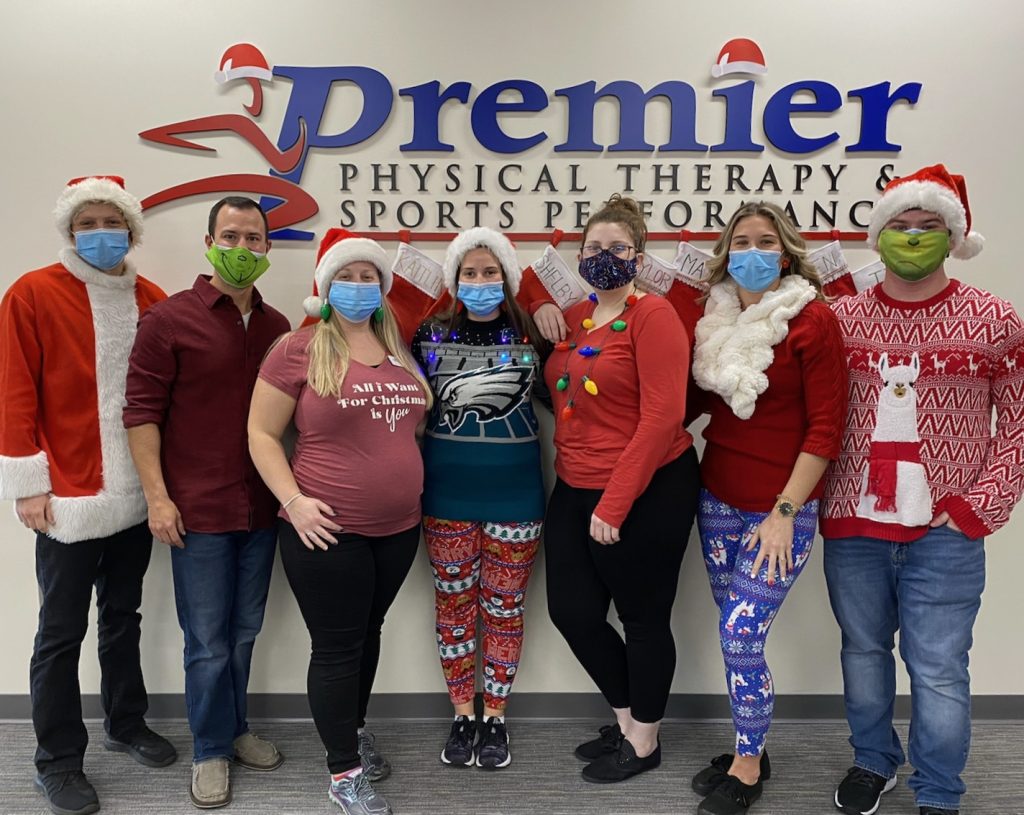
In June of 2020 I was finally called back into work, where I gradually went from working one or two days a week to working five days a week once I had completed my last prerequisite courses. I was the only exercise technician at the clinic and felt a bit overwhelmed. However, this helped me to work on my time management skills, prioritizing tasks, and working on my overall self-care before, during, and after work. In July, I began to apply to schools. I was only able to focus on applications in the evenings and on the weekends due to my busy work schedule. Nonetheless, I was diligent and submitted all my applications by mid-August since I completed my personal statement back in May and reached out to my references in advance.
Once I started to receive interviews, things began to feel so much more real and my Zoom meeting routine had now turned into a Zoom interview routine, requiring me to leave work early or come in late. In November, I had received my acceptance letter from Tufts and genuinely could not believe it—quite literally falling to the floor in disbelief when I had received the email. The conversations that I was having with patients at work began to shift from, “I’m preparing to apply to graduate school” to “I will be attending graduate school,” which was such a surreal feeling. As my last day of work approached and the reality of moving away for school truly began to sink in, I felt overwhelmed about finding roommates, buying furniture, making sure my financial aid was in place, and so much more—something that I had forgotten about after being out of school for a few years.
Something that I struggled with more than I was expecting was the overall adjustment to being a full-time student again. The first 6-week summer session of the OTD program consisted of an OT Foundations course and Gross Anatomy for the first half of the summer, then Neuroanatomy for the second half of the summer. While I had taken prerequisite courses a full year prior to this, I could hear the comments of people I had talked to in the past echoing through my head, telling me how hard it would be to get back into school after taking time off. Once the semester began, those voices progressively got louder. I felt lost navigating Gross Anatomy, as this course was so densely compacted with challenging material. I realized that my study strategies from undergrad weren’t holding up very well in graduate school and that I would need to adjust quickly. Though it took some trial and error, I eventually decided to make Quizlet flashcards, creating one study set for each lecture and one specific study set with all the muscles and their attachments, actions, and nerve innervations. I wrote most of my flashcards as questions, creating a practice exam that I could randomize and add images to if I wanted. I also carried around a small whiteboard and markers in my backpack, drawing the brachial plexus, arteries of the upper and lower extremity, and whatever else I needed to see visually over and over. While it was frightening to make these big changes so early in the semester, I feel like it was helpful to realize that I am not the exact same student that I was in undergrad. Similarly, the program I am in is very different from my undergrad program, which means that changes are to be expected.
Another challenge I faced when beginning grad school was my struggle with the overall transition. In undergrad I experienced homesickness in my first semester, though, after that I began to love college, the people I had met, and the freedom I had. When I started at Tufts, I assumed that it wouldn’t be so bad since I had already lived away from home before. Nevertheless, after just a few weeks, I quickly began to miss my family and my dogs. I was extremely nervous about having to meet so many new people in a graduate-level program. I had an overwhelming feeling of imposter syndrome, like everyone around me was so intelligent and had such remarkable life experiences, and I was constantly comparing myself to others. The times where I really struggled to get out of my own head or had trouble grasping concepts, I turned to the OT faculty. I appreciated their willingness to listen to me and to help me.
Some of these meetings were more personal and would range from talking about things I was struggling with in a specific lesson to delving deeper into what is important to me as a student and what I want out of my education. Fortunately, as time passed, these negative thoughts began to diminish, and I began pushing myself out of my comfort zone and immersing myself in the many great opportunities that are available at Tufts.
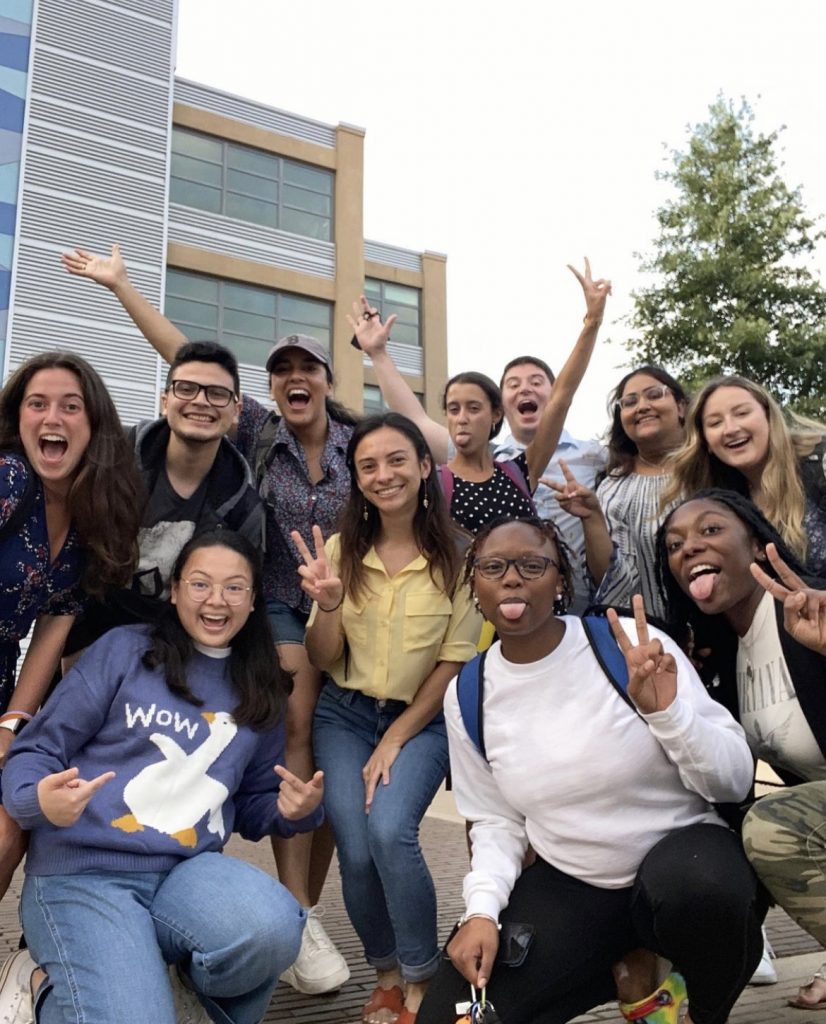
In the summer, I mustered up the courage to run for a position within Tufts’ Student Occupational Therapy Association (SOTA), and I was elected to the Student-Faculty Representative position for my cohort. I was so excited to have the opportunity to bridge the gap between my cohort and the OT faculty, working to make sure everyone’s voices are heard. In the Fall, when the Accreditation Council for Occupational Therapy Education (ACOTE) was coming for an on-site visit with our program, I was one of the students that was selected to help represent the students of our program, which meant a lot to me. Though the most meaningful experiences for me, outside of my education, have been the close relationships I have formed over the months that I have been here. From the casual summer get-togethers with my cohort, to the Annual Fall BBQ and apple picking events hosted by the Graduate Student Council, to the tight-knit relationships I have made with individual classmate’s one-on-one. I genuinely feel like I have become a valued member of the Jumbo community, making Tufts feel like home for me.
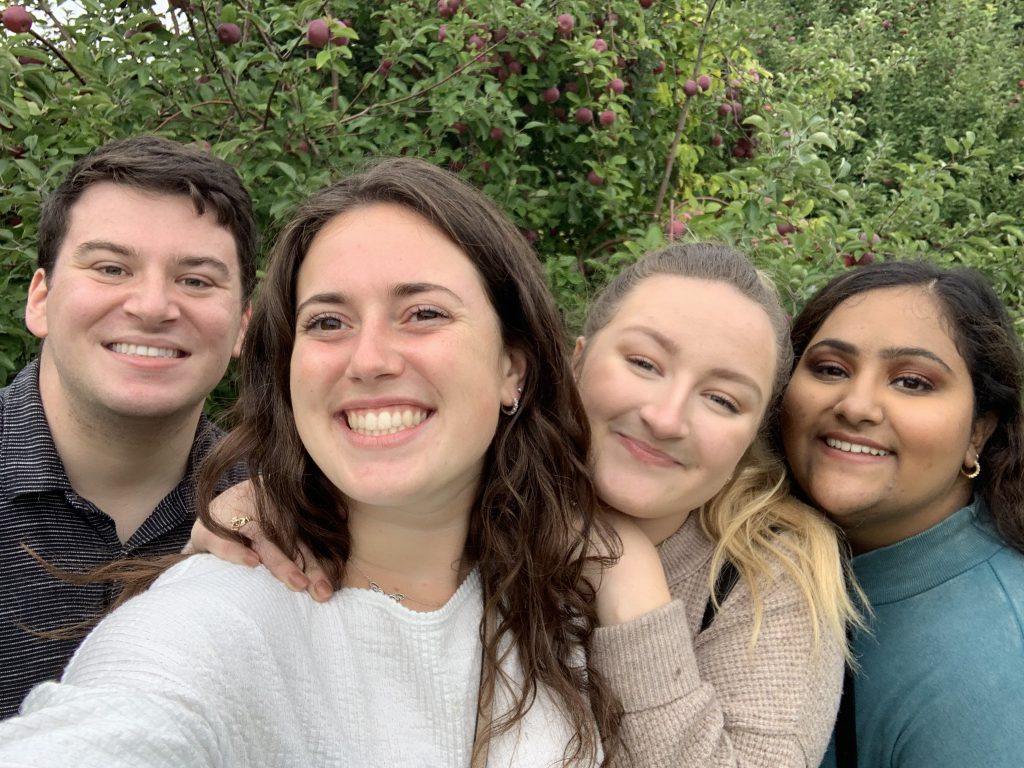
Seeing all my hard work pay off, the loud voices of negativity within my head gradually silencing, and the support I have felt from classmates and faculty have proven that I genuinely deserve to be here. I now view the time that spent out of school as a positive. I had time to work out in the real world, make connections, and grow in a way that I may not have been able to do if I had come straight to graduate school from undergrad. Since starting at Tufts, the fire within me continues to roar as my passion for this profession only increases as I learn. I’m seeing myself grow into the clinician that I had hoped to become.
